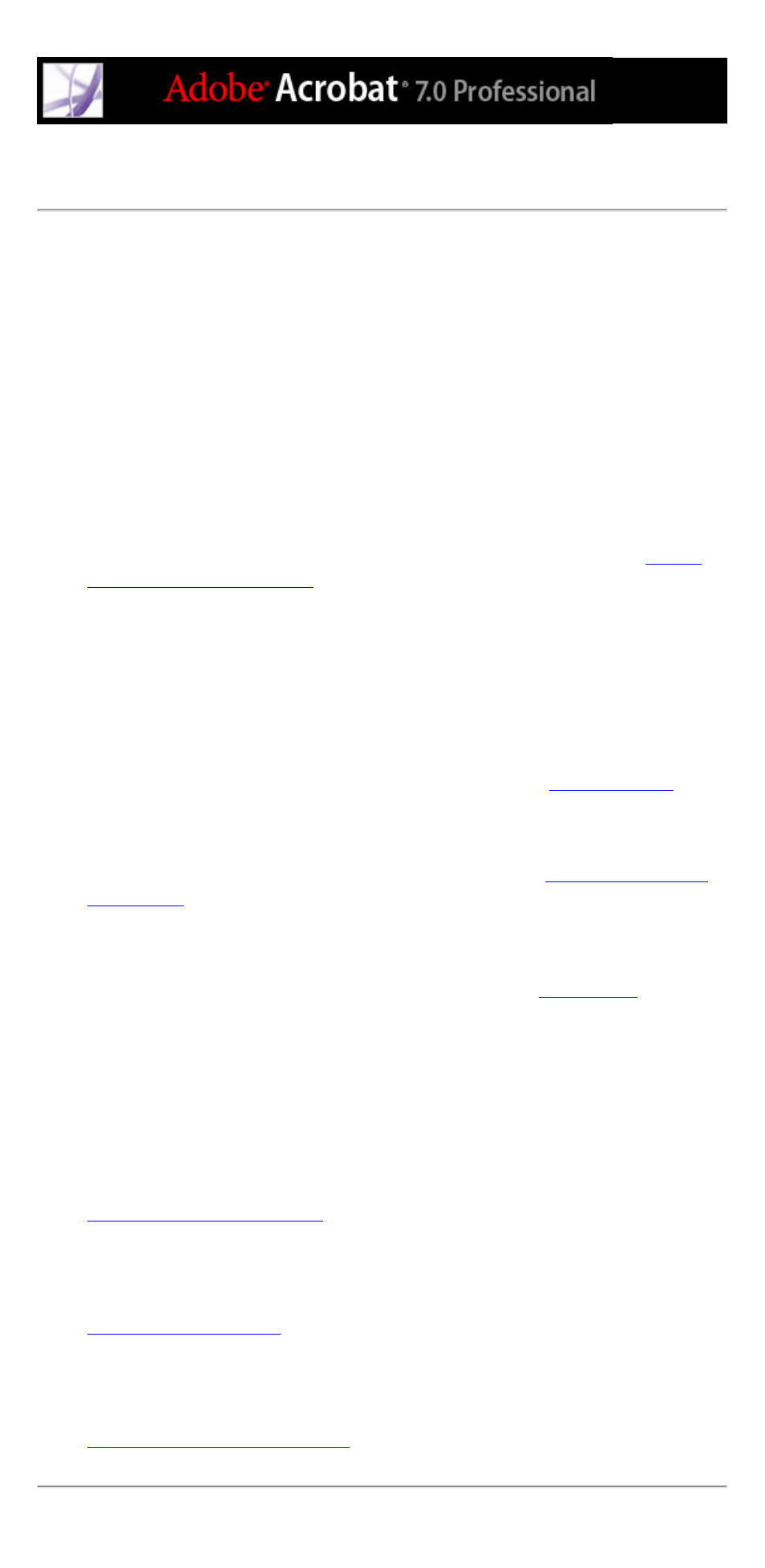About editing adobe pdf documents – Adobe Acrobat 7 Professional User Manual
Page 416

About editing Adobe PDF documents
A common misconception about Adobe PDF documents is that they should behave like
any other document with images and text, letting you freely copy, paste, and move items
on a page. Consider an Adobe PDF file as a snapshot of your original document--whether
it's an Adobe InDesign file or Microsoft Office file: Reserve the more substantial changes
for the authoring application, and use Adobe Acrobat to enhance the "snapshot" PDF file
for readability and distribution.
The major advantages of Adobe PDF are its ubiquitous format, small file size,
navigational tools, and accessibility. Furthermore, you can create tagged bookmarks and
add links and attachments. Examples of edits you can make to a PDF document include
the following:
Add or remove text with the TouchUp Text tool
To create a new line, use Ctrl-click (Windows) or Option-click (Mac OS). (See
text with the TouchUp Text tool
Copy a line or two of text
Use the Select tool and paste it in another application, or use Save As to save all text in
the file, select Rich Text Format from the pop-up menu, and then save the file.
Add and rearrange bookmarks
Change the appearance of bookmarks in the Bookmarks tab. (See
.)
Insert a copied image on a blank page
Choose Edit > Paste, or use the Paste Clipboard Image tool. (See
Create a custom link
Select an action that goes to another page in the document. (See
.)
Combine two PDF files
Open one document and choose Document > Pages > Insert, or combine the two by
choosing Create PDF > From Multiple Files.
Add movies and sound clips
Users can play these movies and sound clips when they open the PDF document. (See
Integrating media into documents
.)
Add headers and footers
Add information, such as titles and page numbers at the top or bottom of pages. (See
Add backgrounds and watermarks
Display text or images in the foreground or background of the PDF document pages. (See
